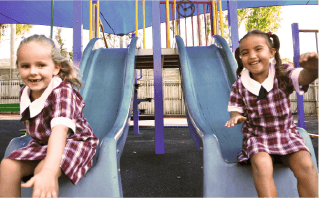
One of the most impactful and spearheading emotions for gaining overall positivity in your life is gratitude. Teaching gratitude to children leads to many desired outcomes in life, including increased energy, greater success in achieving goals, better physical health, better coping of stress, higher feelings of self-worth, and a greater sense of purpose.
If our ultimate goal is for our kids to lead meaningful and joyous lives, the practice of Gratitude may well be one of the most sure-fire ways for them to attain it.
Gratitude is having a genuine appreciation and thankfulness of life, and especially an outward appreciation expressed toward others. Specifically, Gratitude is the psychological response of the feeling of thankfulness for what we have and what we receive.
Why Raising Grateful Children Matters
Think of it this way – it’s literally impossible to simultaneously hold the beliefs that you are “owed something” while also appreciating what you have.
This simple acknowledgement is core to the power of Gratitude.
While being grateful, you literally cannot simultaneously hold negative emotions such as entitlement, jealousy, anger and sadness. By teaching our kids how to be grateful, we emphasise positive emotions such as optimism and respect, while reducing the space available for negative emotions to exist.
When you think of gratitude in this context, the claimed benefits of gratitude, being everything from lower stress, improved sleep, better physical health, increased self-esteem and improved resilience, seem attainable.
And in even better news for our children, those benefits will not only better their lives as they grow, but will also stick with them into adulthood as well.
Science-backed Data About Teaching Gratitude to Children
- According to the UC Davis Health Medical Center, genuine gratitude can reduce signs of depression, stress, and anxiety. Even if your child is not suffering from any of these, know that practicing gratefulness can help shield them from ever having to face it in their lifetime.
- Gratitude can lower the effects of neurodegeneration later in life, which can lead to decreased inflammation and lowered blood pressure. This means that instilling gratitude in your child now will inevitably help them live a longer, healthier life.
- Researcher Sarah Algoe from the University of North Carolina found that gratitude can strongly support people in maintaining relationships. She describes it as the glue that can bring people together and can establish happy connections long-term.
By having your child implement a Gratitude Practice, you will notice them having higher levels of optimism, improved sleep, a better immune system, and become more resilient to life adversities. This, in turn, will give them the ability to focus better in school and feel confident taking on new things.
Gratitude builds momentum in a virtuous cycle. Grateful people experience more positive emotions. They thereby present in the world as being happier, more content, and optimistic. This energy attracts more positive interactions into their lives, thus providing more things to be grateful for.
Put another way, when we appreciate the good in our lives, the good grows, and we experience more of it. The opposite is also true. When we fail to see the good – when we feel entitled or take things for granted – the good diminishes from our lives.
How to Teach Gratitude to Children
So how can we help our kids be more grateful? Here are 5 tips to get you started:
- Show Gratitude Towards Your Children: It is not uncommon for parents to gravitate away from showing gratitude towards kids because they believe that their children should simply do as they say without question. However, the path to raising grateful children does not come from demanding, un-flinched obedience; it comes from demonstrating gratefulness yourself for them to mirror. A small “thank you” can be very powerful for kids to hear from their parents and can reinforce their good behaviour, all while building a rooted appreciation for empathy as they learn how to recognize gratitude in others.
- Teach Your Child(ren) To Give Thanks: Though saying thank you to your child is wonderful at cultivating gratefulness, make sure that you are also encouraging them to give thanks as well. And not just to others, but towards themselves too. An exercise to ignite this is asking your child to give thanks each day for something that they are grateful for. It could be a person, a toy they love, or anything that they appreciate in their life. Naming a few things before bed each day is a fantastic way to support them in establishing a positive frame of mind.
- Donating: As your child gets older, you are going to have to sort through their old clothes and toys that they no longer need or want. But instead of tossing them or donating on your own, have your child be a part of that donation process. Give them the chance to feel like they are helping their community and feeling grateful for being able to help another family out with their generosity.
- Avoid Gift Showering: As much as you want to give your child the world, resist the urge to shower them with stuff. Just like most dietitians would say, “everything in moderation,” this includes buying your child things. Now, this is not to say that you can’t spoil them once in a while; just make sure it is not a habitual thing. Buying them anything they want when they want it can dilute the feelings of gratefulness and lower the value/respect for their possessions.
- Use Positive Affirmations: Adding positive affirmations to your child’s daily routine can work wonders for raising gratitude within them. Using simple yet effective affirmations, like “I find gratitude and joy every day,” can help your child think more positively and become more grateful for what they have in their lives.
Conclusion – Raising Grateful Children
Overall, gratitude is the key to combating negativity. It allows you to acknowledge and appreciate the good aspects of life, and that mindset is powerful for one’s emotional well-being. By helping your child learn how to be grateful during their developing years, you can be confident you are giving them the ideal mental resources to live the quality life they deserve.
Related Articles
What is SEL, and How Can We Practice at Home?




